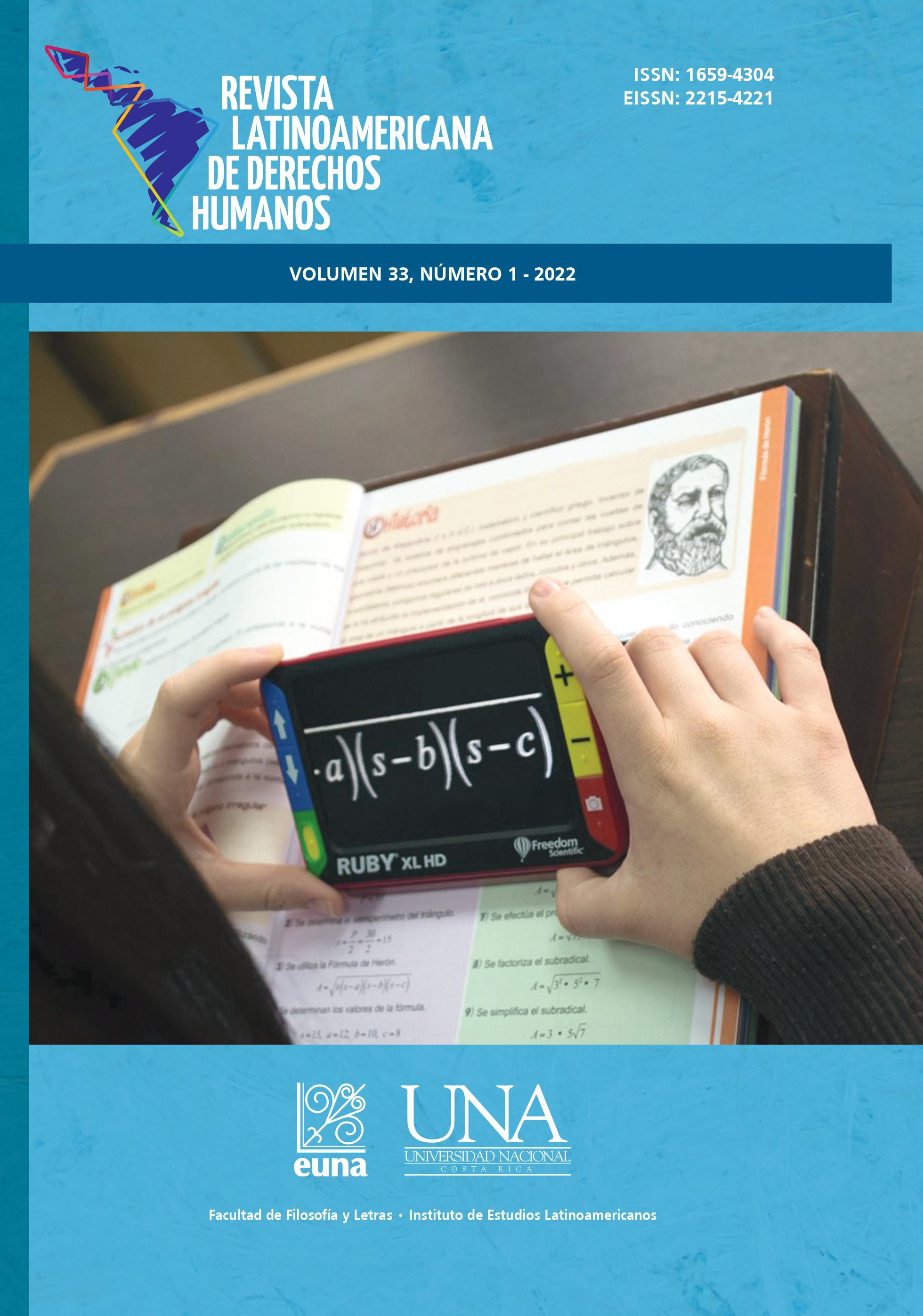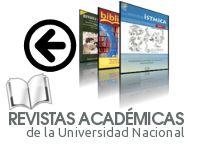Connectivity and higher education in the context of the COVID-19 pandemic, perceptions by students of Public Universities (UNA - UCR - UNED - UTN)
DOI:
https://doi.org/10.15359/rldh.33-1.9Keywords:
ICT, connectivity, digital divide, pedagogical innovation, higher educationAbstract
This article explores the perceptions on connectivity in higher education in the context of the COVID-19 pandemic by students from four public universities in Costa Rica, Universidad Nacional (UNA), Universidad de Costa Rica (UCR), Universidad Estatal a Distancia (UNED) and Universidad Técnica Nacional (UTN). The results of a survey carried out on a sample of 302 active students of the aforementioned universities in the province of Guanacaste are presented through a quantitative, descriptive, non-experimental approach, using the questionnaire and literary review to compile the information. It is remarkable the results that affirm the impact caused and dependence on technology for educational practice in times of coronavirus where good connectivity can make a difference for good student performance. Finally, it is taken as fact the existence of low connectivity in the rural areas of Guanacaste, the existence of students without adequate technological equipment to perform in remote presence, added to the poor internet service by different providers, and the dependence on laptops and cell phones for programmed synchronous and asynchronous activities.
References
Álvarez, D. (2020a, 23 de marzo). COVID-19, Educación digital y el futuro que se anticipa. E-aprendizaje. https://e-aprendizaje.es/2020/03/23/covid-19-educacion-digital-y-el-futuro-que-se-anticipa/
Anaya, T., Montalvo, J., Calderón, A. I., y Arispe, C. (2021). Escuelas rurales en el Perú: factores que acentúan las brechas digitales en tiempos de pandemia (COVID- 19) y recomendaciones para reducirlas. Educación, 30(58), 11-33. https://doi.org/10.18800/educacion.202101.001
Brenner, M. A. (2020, 4 de junio). Google classroom, la cuarentena. El silencio como ausencia pedagógica. Alainet. https://www.alainet.org/es/articulo/205718
Boursicot, K., Kemp, S., Ong, T. H., Wijaya, L., Goh, S. H., Freeman, K., y Curran, I. (2020). Conducting a high-stakes OSCE in a COVID-19 environment. MedEdPublish, 1-9. https://doi.org/10.15694/mep.2020.000054.1
Chanto, C., y Loáiciga, J. (2020). Educandos universitarios: entre la brecha digital y el aprendizaje en tiempos de COVID-19. El caso de Universidad Nacional de Costa Rica (UNA), Sede Región Chorotega, Campus Liberia. Revista Nuevo Humanismo, 8(2), 95-122. http://dx.doi.org/10.15359/rnh.8-2.5
Fondo de Naciones Unidas para la Infancia (2021, 22 de abril). Alfabetización digital para garantizar el presente y el futuro de la Generación del Bicentenario. https://www.unicef.org/costarica/comunicados-prensa/alfabetizacion-digital-para-garantizar-el-presente-y-el-futuro-de-la-generacion
Gewin, V. (2020). Five tips for moving teaching online as COVID-19 takes hold. Nature, 580(7802), 295-296. https://doi.org/10.1038/d41586-020-00896-7
Gonzales-Zamora, J. A., Alave, J., De Lima-Corvino, D. F., y Fernández, A. (2020). Videoconferences of Infectious Diseases: An educational tool that transcends borders. A useful tool also for the current COVID-19 pandemic. Le infezioni in medicina, 28(2), 135. https://pubmed.ncbi.nlm.nih.gov/32275254/
Hodges, Ch., Moore, S., Lockee, B., Trust, T. y Bond, A. (2020, 27 de marzo). The Difference Between Emergency Remote Teaching and Online Learning. Educause Review. https://er.educause.edu/articles/2020/3/the-difference-between-emergency-remote-teaching-and-online-learning
La Confederación Española de Asociaciones de Madres y Padres del Alumnado (2020, 30 de marzo). Las familias piden a los profesores "dosificar las excesivas tareas a distancia". Público. https://www.publico.es/sociedad/familias-piden-profesores-dosificar-excesivas-tareas-distancia.html
Martínez, O. (2020). Brecha digital educativa. Cuando el territorio es importante. Sociedad e Infancias, 4, 267-270. https://doi.org/10.5209/soci.69629
Mian, A., y Khan, S. (2020). Medical education during pandemics: a UK perspective. BMC medicine, 18(1), 1-2. https://doi.org/10.1186/s12916-020-01577-y
Organización de las Naciones Unidas para la Educación, la Ciencia y la Cultura (2020a, 16 de marzo). Interrupción y respuesta educativa. https://es.unesco.org/covid19/educationresponse
Organización de las Naciones Unidas para la Educación, la Ciencia y la Cultura (2020b) COVID-19 y educación superior. De los efectos inmediatos al día después. Análisis de impactos, respuestas políticas y recomendaciones. [Archivo PDF]. http://www.iesalc.unesco.org/wp-content/uploads/2020/05/COVID-19-ES-130520.pdf
Plan Nacional de Desarrollo de las Telecomunicaciones (2015). Costa Rica: una sociedad conectada. [Archivo PDF]. https://www.micit.go.cr/sites/default/files/pndt-2015-2021_2.pdf
Programa Estado de la Nación (2020). Informe Estado de la Nación. [Archivo PDF]. http://www.conicit.go.cr/sic/biblioteca_virtual/publicaciones/publica_cyt/informes/Informe_Estado_Nacion_2020.pdf
Torices, A. (2020, 31 de marzo). Educación distribuirá 20 000 líneas móviles entre estudiantes sin medios telemáticos. Diario La Rioja. https://www.larioja.com/sociedad/educacion-distribuira-20000-20200330175127-ntrc.html
Trujillo, F. (2020a 18 de marzo). Sentido común pedagógico frente a la crisis del coronavirus. Educación 3.0. https://www.educaciontrespuntocero.com/opinion/exceso-de-deberes-para-los-estudiantes-coronavirus/
Trujillo, F. (2020b, 26 de marzo). Educación frente al coronavirus. Fernando Trujillo. https://fernandotrujillo.es/ano-2020-educacion-frente-al-coronavirus/
Vallespín, I. (2020, 7 de abril). CC.OO. alerta de la brecha digital entre los profesores para impartir clases en línea. El País. https://elpais.com/espana/catalunya/2020-04-07/cc-oo-alerta-de-la-brecha-digital-entre-los-profesores-para-impartir-clases-en-linea.html
Vivanco-Saraguro, A. (2020). Teleducación en tiempos de COVID-19: brechas de desigualdad. CienciAmérica, 9(2), 166-175. http://dx.doi.org/10.33210/ca.v9i2.307
Wanderley, F., y Calvo, C. (2020). Educación y brecha digital. Trabajo de calidad. [Archivo PDF] https://boliviadebate.org/wp-content/uploads/2021/01/Cartilla-5.pdf
Wang, C., Cheng, Z., Yue, X.-G., y McAleer, M. (2020). Risk Management of COVID-19 by Universities in China. Journal of Risk and Financial Management, 13(2), 36. https://doi.org/10.3390/jrfm13020036
Wendelboe, A. M., Miller, J. D., Drevets, D., Salinas, L., Miller, E. J., y Jackson, D. (2020). Tabletop exercise to prepare institutions of higher education for an outbreak of COVID-19. Journal of Emergency Management, 18(2), 183. https://doi.org/10.5055/jem.2020.0463
Zhang, W., Wang, Y., Yang, L., y Wang, C. (2020). Suspending Classes Without Stopping Learning: China’s Education Emergency Management Policy in the COVID-19 Outbreak. Journal of Risk and Financial Management, 13(3), 1-6. https://doi.org/10.3390/jrfm13030055
Downloads
Published
How to Cite
Issue
Section
License
El material que se publica en esta Revista está bajo una licencia “Creative Commons” 3.0 Costa Rica (CC, Reconocimiento-NoComercial-SinObraDerivada 3.0 Costa Rica (CC BY-NC-ND 3.0 CR) . Esto significa que el material publicado en la revista se puede compartir (copiar y distribuir) en cualquier medio o formato considerando que se debe reconocer de forma adecuada la autoría del material y la fuente, no puede utilizarse con fines comerciales y no se aceptan las obras derivadas (remezclar, transformar o crear a partir del material).








